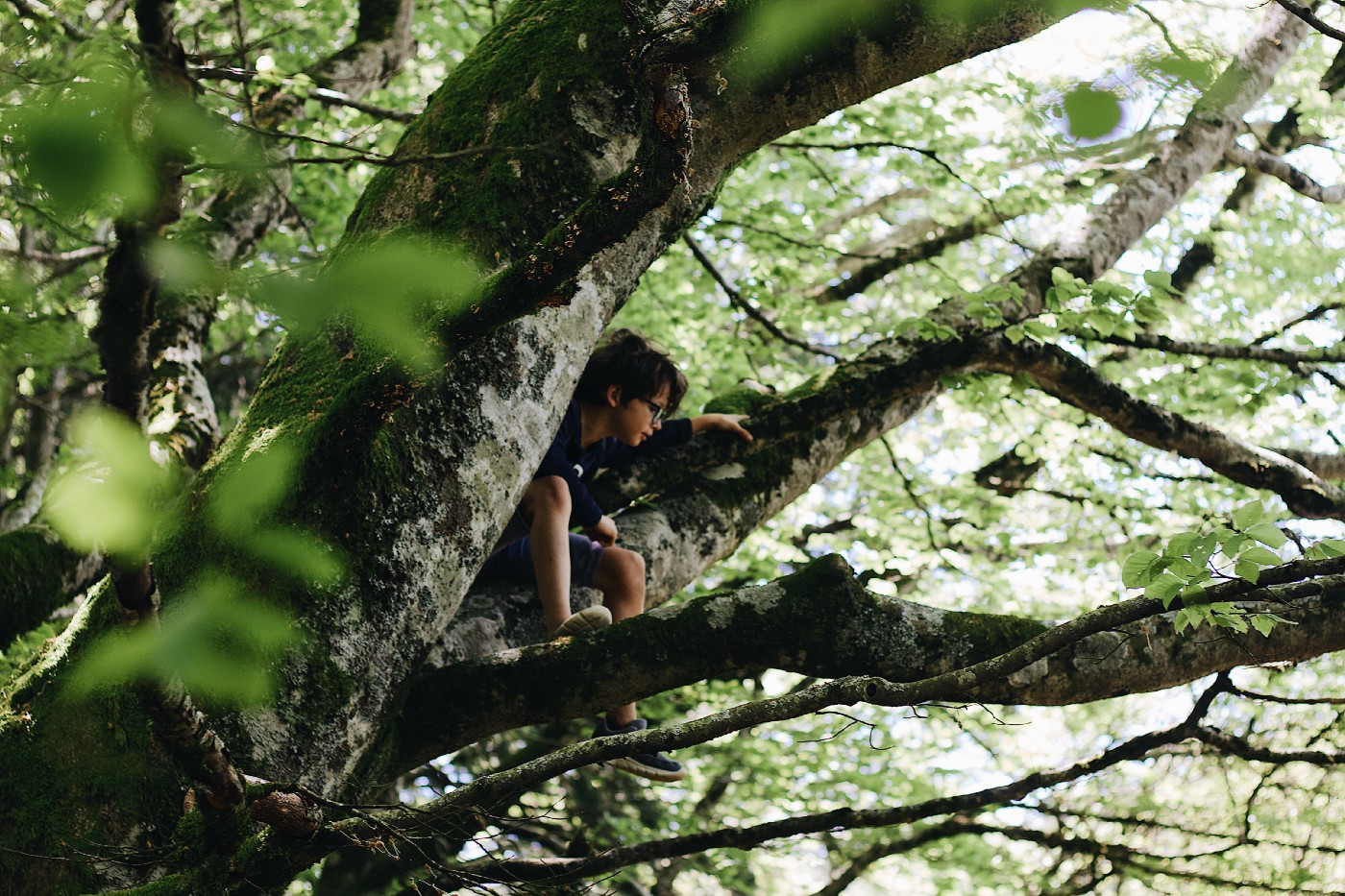By Kristine Heim
I wasn’t a roughneck growing up, but I revered audacity

A family of eight feral kids lived on the corner of my block, in two-and-a-half stories of dilapidated wonder: creaky floors, cracking walls, a leaning exterior staircase. Their last name, filled with extra letters, was some bastardized version of some French version of something. We just called them the Butch-arders, because that’s what they called themselves. The Boucharder mother stayed on the main floor tending babies and endlessly stirring pots of soup. The Boucharder father, short and balding, rarely appeared.
The Boucharder kids, seven boys and one girl, stair-stepped in ages from eleven-year-old Joey — a year older than I — to toddlers. The older ones played and slept in the upper stories, comprised of an empty second floor apartment and a third-floor attic. There, they fought, kicked and bit their way to a universe governed only by themselves. They carried up cans of food from the main floor and opened them with hammers and screwdrivers. They heaved the empty cans at cars from the roof. They lit matches for fun. My mother prohibited my younger brother, John, and me from playing at their house. Naturally, we sneaked over every chance we got.
The Boucharder adults rarely set foot upstairs. Those rotting outdoor steps would’ve caved under their weight. Instead, the Boucharder parents stood on the concrete pad and shouted up at the Boucharder kids, until the kids finally yelled back with vague assurances or outright lies.
The leader of the clan was the brilliant and secretive Chris, born somewhere in the middle. While the rest of the Boucharder tribe was short, dark and stumpy, third-grade Chris was blond, freckled and graceful. He didn’t care if he had followers or not. But we all emulated him, recognizing his direct access to the Mind of God.
One summer afternoon, John and I sat around a cardboard box with a collection of Boucharders, playing cards in the empty second floor’s living room. Dirty pillows, stained sleeping bags and rumpled blankets surrounded us. All the older Boucharder kids except their sister Mickie, slept on the floor. Mickie, my age, had her own small room.
Joey laid a run on the box and announced he was about to go out, just as Chris came through the entrance, passed through the room and disappeared up the attic staircase. We watched him, then went back to our game. Stakes were high, as the winner got to call a dare for the others. But soon Chris appeared — again coming through the entry.
“How did you get there?” we shouted.
He didn’t reply, just re-climbed the steps. We looked at each other, flung our cards onto the box, and trailed him to a tiny room under the eaves. There, Chris scrambled through a square window onto a small side-roof, calculated with the aplomb of a sniper, and launched himself into a nearby spruce. We watched him sled to the bottom on branches that bent and lowered him from one to the next, in a series of handoffs. Like a cat, he landed on his feet two stories below, brushed himself off, and raced up the stairs again.
Crowded around that attic window, we stood speechless at so monumental a scheme. When he reappeared and climbed through the window again, we studied his spring to the same limb, his ride from one specific branch to the next. We memorized his route, checked his readjustment if something started to go wrong. We monitored his face, a combination of self-confidence and indifference.
As one, we understood what was before us: the perfect and dangerous business of children. Wordlessly, we took our places in line. One by one, we flung ourselves from the roof into that two-story colossus. One by one, we returned to do it again.
I don’t remember how long our pastime lasted. It could’ve been an hour, or the rest of the afternoon. All I remember is David in front of me, Mickie behind, and my brother somewhere at the back. Every moment of that fearless afternoon was its own flawless bubble, a totality of gravity and speed, heady with the pungence of spruce, soft earth and rapture.
We took turns over and over until the mundane intervened — dinner, another idea, or simply, enoughness. And then we stopped.
That’s all there is to tell.
You’d think the Boucharder mama would’ve inquired after children continually charging through the narrow side yard, but she didn’t.
You’d think the neighbors would’ve noticed the unnatural movement of evergreen branches, but they didn’t.
Boughs might have broken, but they didn’t.
We might have fallen to our deaths, but we didn’t.
There are no accidents to report and no apologies to make. At the Boucharder’s, we learned to fly.
________________________________________________________________________
This article was also published at https://medium.com/@krisheim/the-boucharders-5b99d5708186